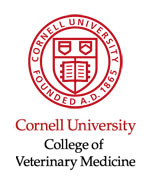"The Health Paradigm and Disease Control:
Consideration of the Health of Ecosystems and Impacts on
Human Health and Rural Livelihoods"
Michael D. Kock
Historically when considering disease control methods, authorities
in Africa have paid scant attention to the impact these methods
might have on ecosystems, the flora and fauna that reside
therein, nor the livelihoods of human communities who might
rely on these resources. Healthy ecosystems contribute to
sustainable development and human well-being, and provide
a diverse resource base that can be utilized on a sustainable
basis to address poverty.
Ecosystems should not be viewed purely as “wildlife”
or “natural community” based; rather, they should
be seen to support the myriad activities of humans and animals
that occur on a daily basis, including livestock production.
Recognition of the many ecosystems (both natural and human-derived,
i.e. altered but healthy systems) that exist over a landscape
and how they are interconnected is essential in developing
a holistic approach to managing diseases and protecting biodiversity.
Veterinarians need to move away from a “reductionist” approach
to disease control and begin to recognize the value of a “one
medicine, many ecosystems” approach to protecting livelihoods,
addressing poverty and environmental issues.
Ecosystem health can be assessed by adopting a biomedical
approach. For example, the development of ecological health
or condition monitoring criteria that are linked to health
monitoring of communities and their livestock would form
a critical component of an ecosystem health approach. This
would allow the monitoring of the overall condition of the
ecosystem and its components in an “umbrella”
fashion contributing towards the well-being of people, livestock,
wildlife and the environment. Monitoring should occur across
landscapes, be multi-disciplinary, complementary, detect
(diagnose) problems and lead to the generation of solutions
(treatment).
|
|











